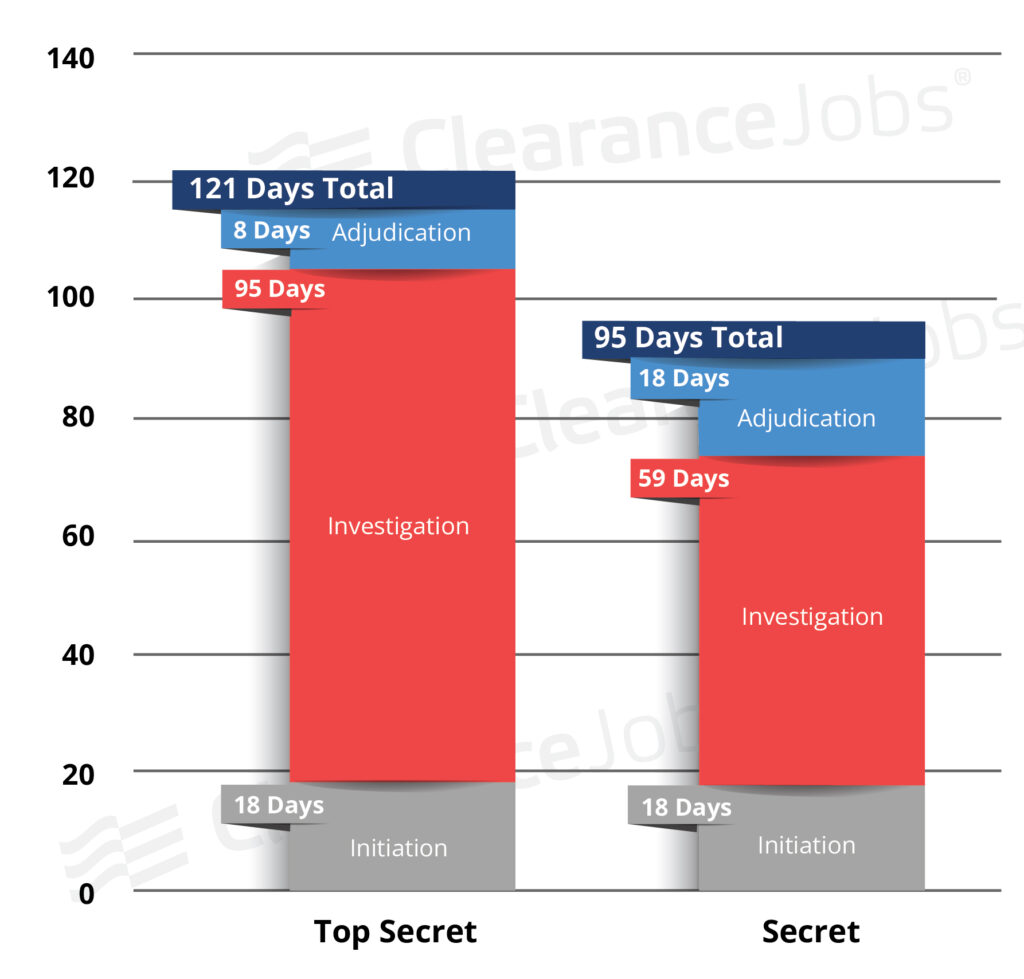Security clearance processing times continue to decrease, according to figures recently released by the Defense Counterintelligence and Security Agency (DCSA). It currently takes 121 days to obtain a Top Secret security clearance for the fastest 90% of DoD/Industry applicants, and 95 days to obtain a Secret clearance for the fastest 90% of DoD/Industry applicants.

Clearance denials and revocations flagged by DCSA for FY 2022 were:
If you follow security clearance denials and revocations, you’ll note these figures align fairly closely with the overall causes of security clearance denial and revocation gathered annually and as reported by the Defense Office of Hearings and Appeals (DOHA). The key difference between DOHA’s reported cases and the DCSA quarterly update is Foreign Influence, which ranks third in causes of clearance denial and revocation for DOHA and doesn’t break the top 5 for causes listed by DCSA for FY2022 year-to-date.
Why fewer foreign influence issues in the quarterly versus overall update? That may come down to how the alerts are triggered. As Trusted Workforce 2.0 rolls out and agencies implement Trusted Workforce 1.5, automated records checks are more likely to find issues of criminal conduct, alcohol consumption or drug involvement – largely due to flagged issues around a DUI or other drug or alcohol-related citation. What won’t be flagged in a CE alert (but will come up in an initial SF-86) are foreign-born relatives or overseas connections. As CE continues to flag and find potential security clearance issues sooner (based on a CE-trigger and not on a 5 or 10-year episodic interval), the top causes of clearance denial and revocation may fluctuate.
DCSA’s Vetting Risk Operations office notes CE alerts continue to prove successful in identifying issues early, with 45,000 valid alerts from 31,000 unique subjects. And 40% of those alerts were not previously known.
Self-Reporting AND CE
With CE (of some form) applicable to all security clearance holders, government leaders continue to emphasize the need to continue a culture of self reporting issues rather than waiting for a CE alert to be triggered. Self-reporting requirements have not changed under CE, and a critical step for security clearance holders to mitigate potential issues – particularly among the top causes of clearance denial and revocation like financial issues or an alcohol-incident – is to report those issues to their security officer.




